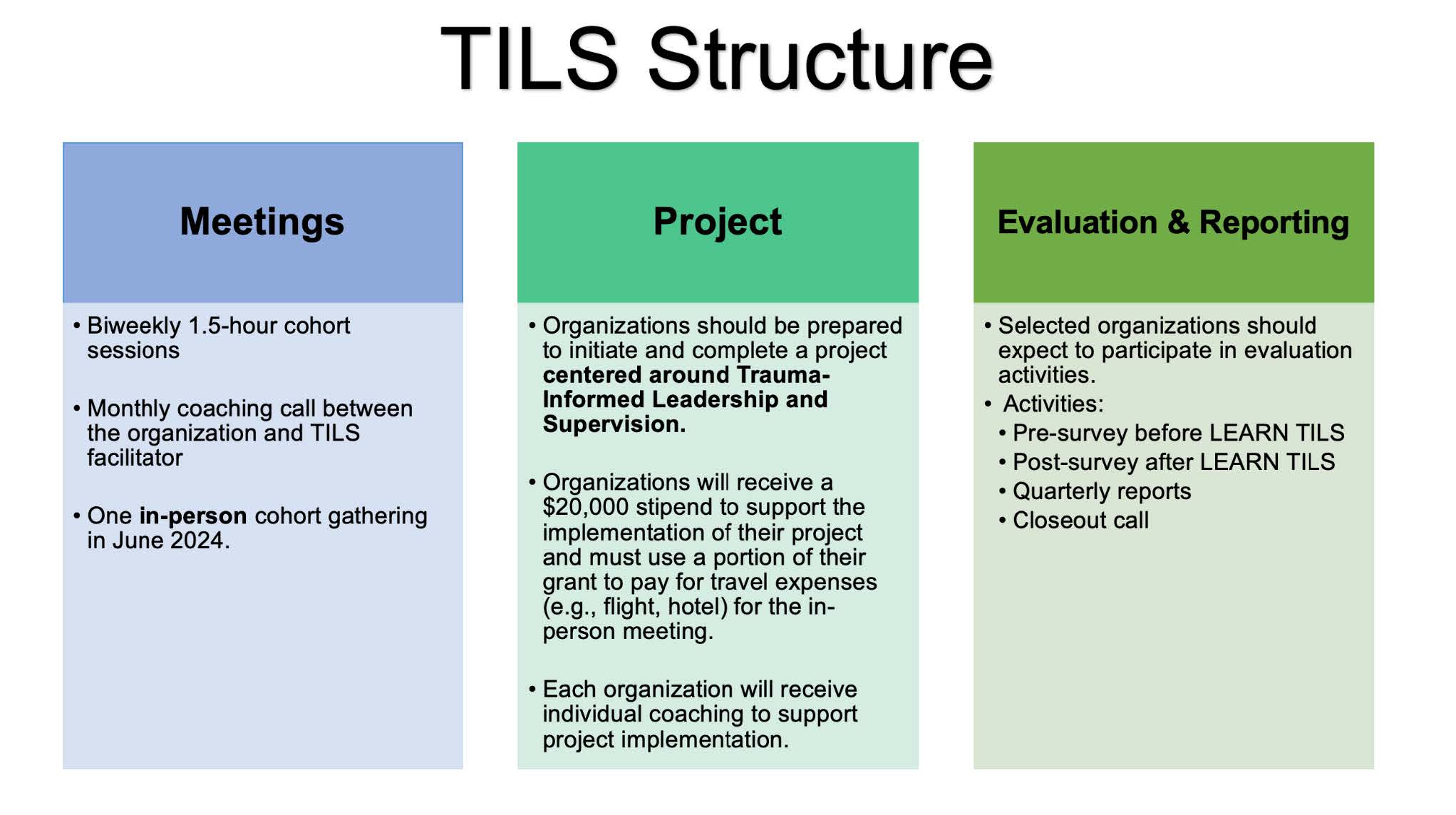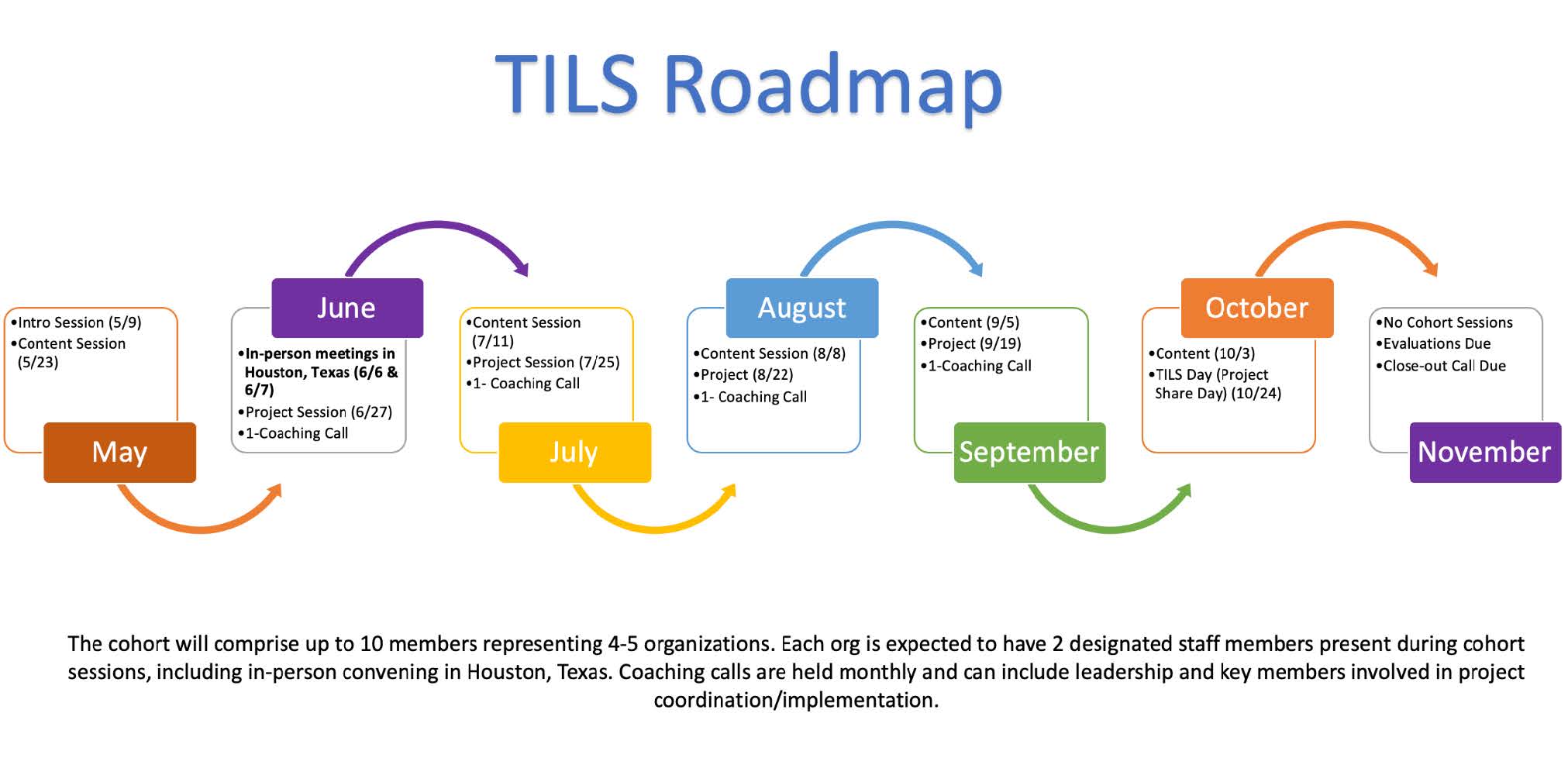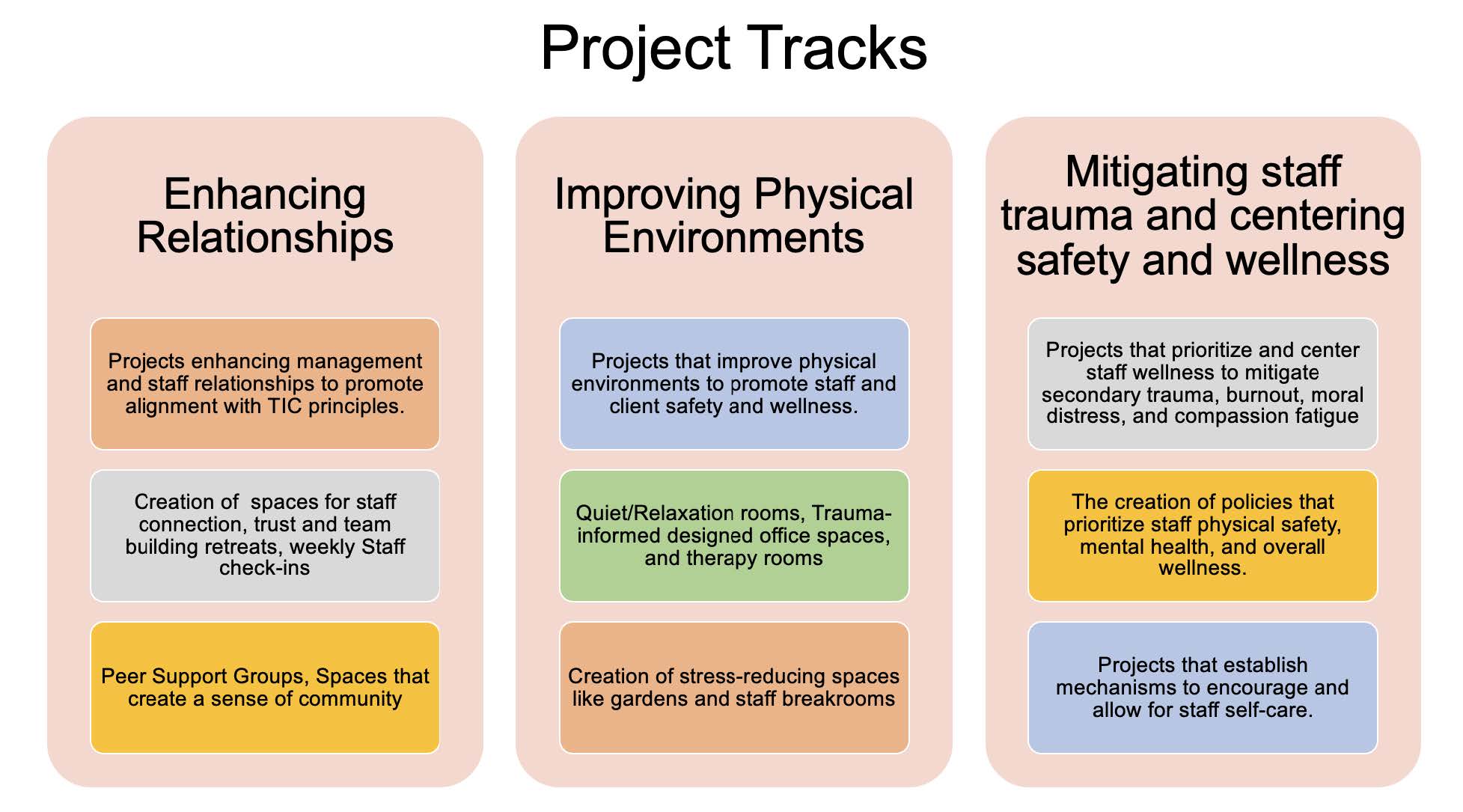Login to Complete an Application or to Access Judging Panel
COMPASS Initiative® Leading through Education, Advocacy & Resistance with our Neighbors (LEARN): Trauma-Informed Leadership and Supervision (TILS)
Application Spring 2024
Program Description
Leading with Education, Advocacy & Resistance with our Neighbors (LEARN) is SUSTAIN Wellbeing COMPASS Coordinating Center’s shared learning opportunities to build organizational leadership and support organizational transformation. The primary
goal of LEARN is to build knowledge, capacity, expertise, and leadership in a particular topic area. A second important goal of LEARN is to strengthen community networks through enhanced collaboration between participating organizations. Each cohort of LEARN is centered on a different content area.
The SUSTAIN Center is excited to announce the launch of our third cohort of LEARN Trauma-Informed Leadership and Supervision (TILS), which will be developed and facilitated in collaboration with Lladira Aguilar, Capacity Building Assistance Manager with SUSTAIN. No prior knowledge of Trauma-informed Care is required to participate. Four to six organizations will be selected to receive a $20,000 grant for this year’s cohort.
About Trauma-Informed Leadership & Supervision (TILS)
A specific goal of LEARN TILS is to educate and equip HIV service leadership and those in supervisory roles with the knowledge and skills needed to implement and foster trauma-informed environments for staff and the people you serve.
The socio-political context of the US has become increasingly distressing and precarious due to recent and recurring events (i.e., the COVID-19 pandemic, police brutality). These unprecedented events highlight the ways in which intersecting systemic oppressions (i.e. anti-Black racism, sexism, heterosexism, etc.) continue to perpetuate trauma among communities including those impacted by HIV/AIDS. This oppressive context, in combination with organizational factors, such as minimal resources, under-staffed organizations and increased caseloads are barriers in providing quality care to people living with HIV. This can result in burnout, secondary trauma, high turnover, compassion fatigue, and overall dissatisfaction among staff and leadership. To end the HIV epidemic, we must consider the negative impact of organizational environments on both staff and clients, and create strategies and interventions to build equitable and trauma-informed environments that foster healing for everyone.
Informed by the six principles of trauma-informed care (Safety, Trust/Transparency, Collaboration, Peer Support, Empowerment, Voice & Choice, Historical, Gender, and Cultural factors) trauma-informed leadership and supervision is a justice-oriented strategy for leadership and supervisors to create healthy professional relationships with their staff members and prioritize their overall wellbeing. For trauma-informed leadership and supervision to advance justice and staff wellbeing, it must be meaningfully incorporated into organizational policies and procedures, realistically operationalized, and integrated into daily practices. More importantly, trauma-informed leadership and supervision should be intentionally modeled by organizational leadership as a way to support and sustain change. Trauma-informed leadership and supervision is rooted in trauma-informed care and you can read more at in the SAMHSA Concept of Trauma and Guidance for a Trauma-informed Approach.
After LEARN TILS participants will be able to:
- Understand how intersectional systemic oppression and traumatic events impact individuals and their functioning in the workplace, particularly for Black, Latinx, and Indigenous staff.
- Connect the principles of trauma-informed care to their daily work and organizational mission.
- Apply the core components of trauma-informed leadership and supervision through the successful implementation of a project.
- Describe how trauma-informed leadership and supervision supports staff and client wellbeing.
- Apply multiple trauma-informed leadership and supervision strategies in their respective environments.
About LEARN
TILS has 3 different but intersecting components and organizations can expect to contribute up to 6 hours per month over the course of 6 months.


TILS Projects
Projects should fall in line with one of the following project tracks.

Eligibility
Organizations interested in participating in LEARN TILS must have a primary organizational purpose of serving people living with HIV. Organizations that demonstrate a commitment to cultivating the leadership of Trans, Women, Latinx, Black, Immigrant and Lesbian, Gay, and Bisexual communities will be prioritized, along with those who serve rural communities and communities most impacted by the HIV epidemic (see Ending the HIV Epidemic jurisdictions). Organizations of all sizes are encouraged to apply, but for those that have more than 30-40 staff members, please specify your application to a particular department of your organization. No prior knowledge around trauma-informed care is required to participate.
Organizations eligible to participate in LEARN TILS must:
- Have a primary organizational purpose of serving people living with HIV and aim to increase engagement of staff in a more meaningful way and committed to prioritizing staff wellness
- Have an idea for a project centered around Trauma-Informed Leadership and Supervision that they would like to work on throughout LEARN
- Be a non-profit, tax-exempt organization as set forth in section 501(c)(3) of the Internal Revenue Code. Applicants that do not hold 501(c)(3) status must have a fiscal sponsor to apply;
- Be located in one of the twelve Southern states (AL, AR, FL, GA, KY, LA, MS, NC, OK, SC, TN, TX); and
- Identify and commit 2 people within the organization (1 decision-maker and 1-person currently supervising staff) that agree to participate fully in each session.
Funding
Organizations will receive a $10,000 stipend to support costs related to implementing their harm reduction project.
Allowable Expenses
It is appropriate to use LEARN funds to pay for things like materials, meeting expenses, printing, graphic design services, etc. However, there are prohibited expenses. You cannot use the funds to pay for or offset the cost of any of the following:
- Medications or purchasing of medications
- Direct medical expenses, including lab expenses
- Existing deficits of organization
- Biomedical research or clinical trials
- Projects that directly influence or advance Gilead Science’s business, including purchase, utilization, prescribing, formulary position, pricing, reimbursement, referral, recommendation or payment for products
- Individuals, individual health care providers, or physician group practices
- Events or programs that have already occurred
- Government lobbying activities
Please Note: Reimbursement for items/services purchased or initiated prior to the submission of this funding request will not be supported. Organizations that do not complete final assessments and/or reports, or utilize funds for the intended purpose will not be eligible to receive any additional funding from the SUSTAIN Wellbeing COMPASS Coordinating Center.
Accessibility Statement
Guided by our COMPASS values, we strive to be accessible and accommodating to the communities we work with.
LEARN TILS Accessibility: Accessibility is our priority and we are committed to better practices that would support your application process. If you would like another option to apply, please email our LEARN TILS lead, Lladira Aguilar at laguila9@central.uh.edu by March 1, 2024 at 11:59pm (eastern) / 10:59 (central). Requests after March 1, 2024 will not be considered.
APPLICATION
Application Deadline: March 15th, 2024 at 11:59pm EST (10:59 CST)
How to Apply
Please return to the Home Page to apply for this funding.
View the PDF version of the application HERE.